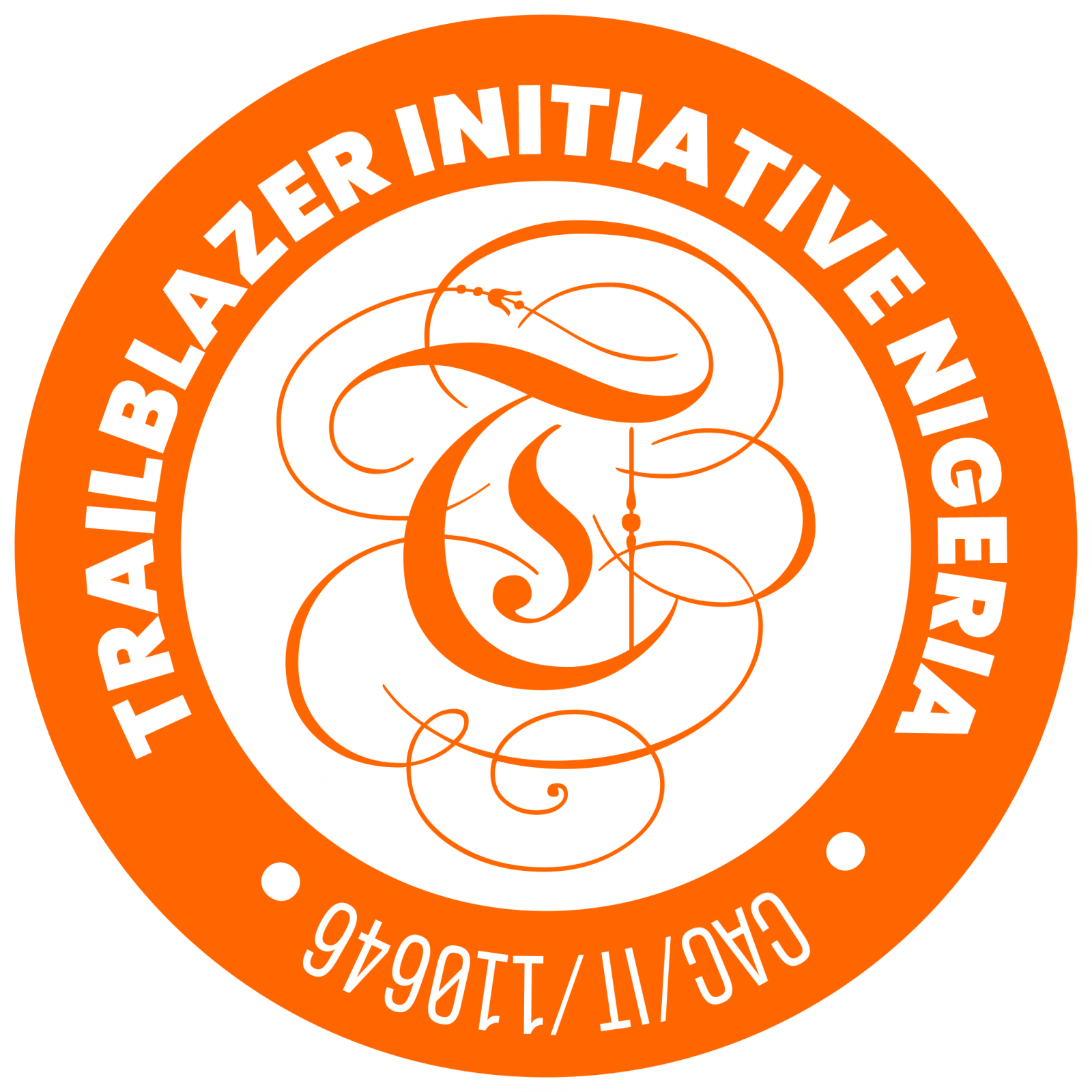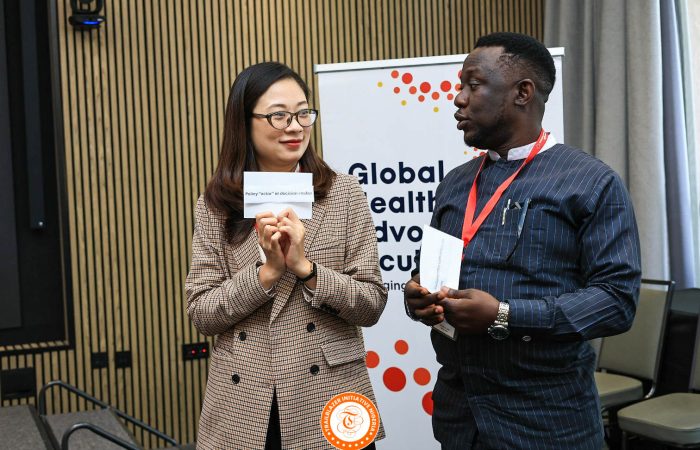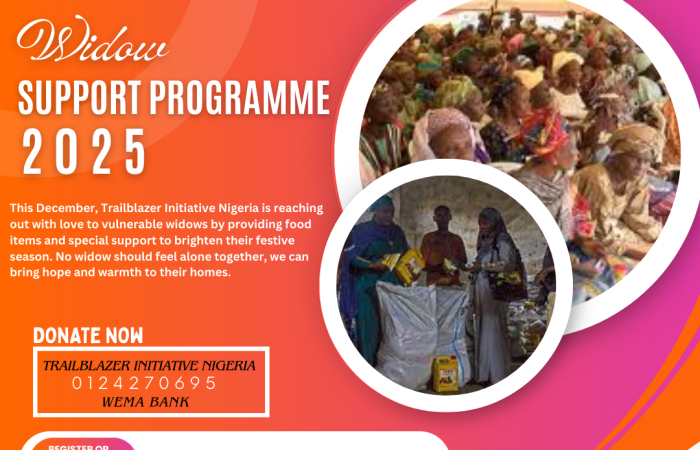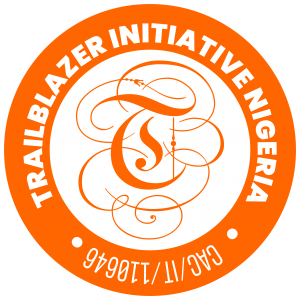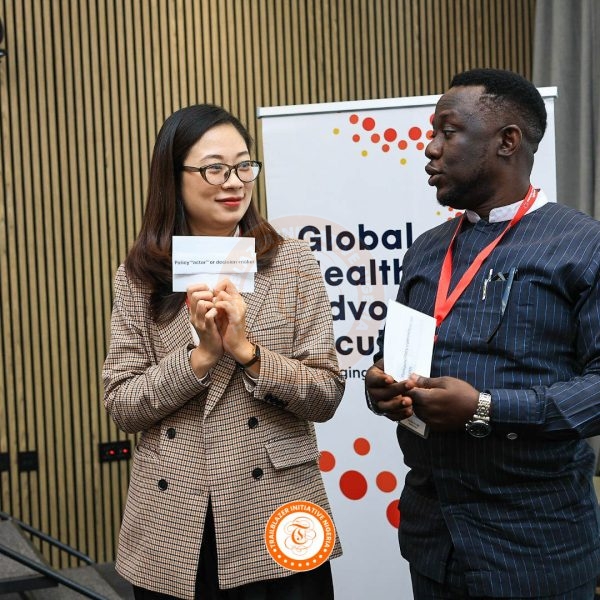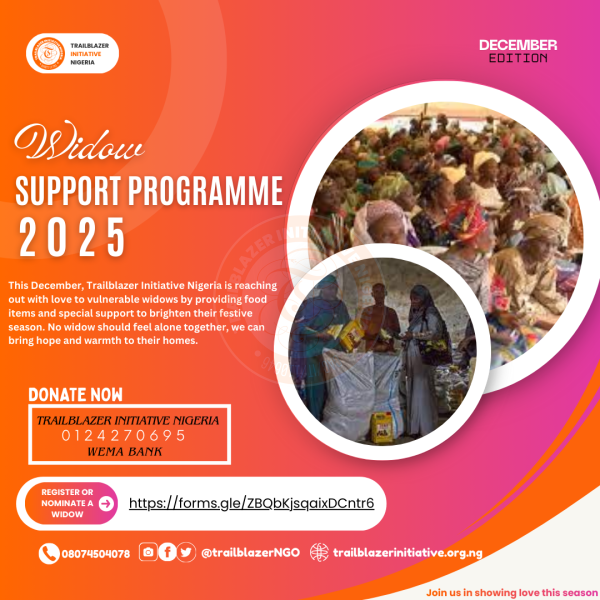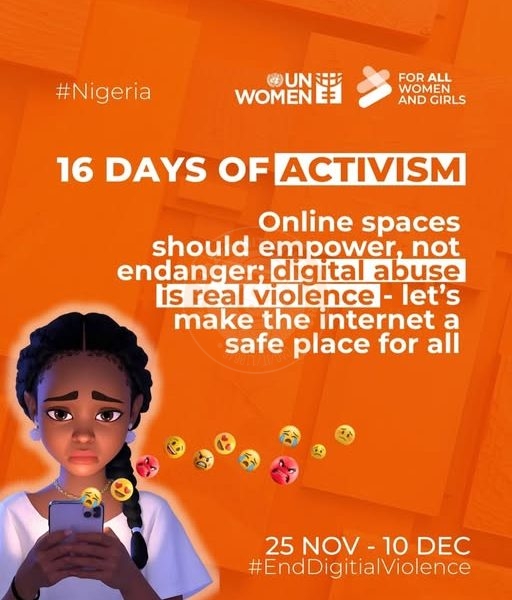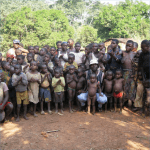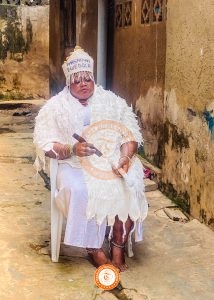 In the quiet community of Pegba in Oluyole Local Government Area of Oyo State, a transformation is taking place—led not by politicians or celebrities, but by a revered woman known to many as Yeye L’orisa of Ibadan Land. Her real name, as she jokingly introduces herself, is Yeye Alarafin Olofo Lo Binu Ologo, meaning “an empty barrel gets pissed with a glorious person.” But within her community, she is more than just a priestess—she is a respected Traditional Birth Attendant (TBA), a custodian of culture, and now, a proud advocate for the elimination of Female Genital Mutilation (FGM).
In the quiet community of Pegba in Oluyole Local Government Area of Oyo State, a transformation is taking place—led not by politicians or celebrities, but by a revered woman known to many as Yeye L’orisa of Ibadan Land. Her real name, as she jokingly introduces herself, is Yeye Alarafin Olofo Lo Binu Ologo, meaning “an empty barrel gets pissed with a glorious person.” But within her community, she is more than just a priestess—she is a respected Traditional Birth Attendant (TBA), a custodian of culture, and now, a proud advocate for the elimination of Female Genital Mutilation (FGM).
For years, Yeye L’orisa followed in the footsteps of her foremothers, performing female circumcision on newborn girls brought into the world through her skilled hands. “They did it for me,” she says, “and I did it for others. It was our tradition, something we never questioned.”
But as times changed and knowledge spread, so did her perspective.
The turning point came when Alhaji Tairu, fondly known as Alafa, a respected Islamic cleric in the community, introduced her to the work of Trailblazer Initiative Nigeria, a youth and women-led organization actively working to eliminate FGM in partnership with UNICEF Nigeria and the Oyo State Ministry of Women Affairs and Social Inclusion.
Curious and open-minded, Yeye attended a community sensitization program organized by Trailblazer Initiative. What she encountered would reshape her beliefs and change the course of her life’s work.
“I went there with two other traditional birth attendants,” she recalls. “As we listened, we began to understand the pain, trauma, and health risks we had unknowingly been inflicting on these girls. For the first time, I saw FGM not as culture, but as harm.”
She was particularly moved by the medical explanations on how FGM does not prevent promiscuity—one of the main justifications used by older generations. “We always believed cutting would make girls less wayward,” she admits, “but look around—has promiscuity stopped? No. So why continue hurting them?”
From that moment on, Yeye made a personal vow to stop the practice. She went home and packed away every single tool she had ever used for FGM. “I no longer have them. I threw them out myself,” she says proudly.
Today, Yeye L’orisa is no longer known for her circumcision skills but for her powerful advocacy. She uses every opportunity—traditional gatherings, naming ceremonies, women’s group meetings—to spread the message of FGM abandonment. As a respected Osun priestess and spiritual figure, her words carry influence, especially among other traditional practitioners and elders who might otherwise resist change.
“Some people didn’t believe at first,” she notes. “But now, many are beginning to understand, and I’m so happy to be part of that change.”
She continues to work closely with Trailblazer Initiative, sharing her testimony and urging others to embrace new knowledge. “This program opened our eyes,” she says. “It gave us truth, and truth is stronger than tradition when lives are at stake.”
To her, the fight to end FGM is not just about abandoning a harmful practice—it’s about protecting the dignity and future of every girl child.
“In the olden days, we didn’t know better,” she reflects. “But now we do. And with that knowledge comes responsibility. I will not stop speaking until every blade is dropped, and every girl is safe.”
Yeye L’orisa’s story is a powerful reminder that when cultural custodians lead change from within, transformation is not only possible—it becomes inevitable.
